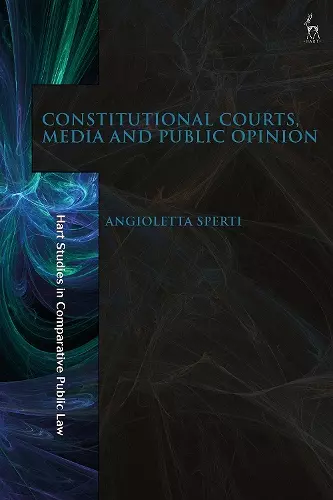Constitutional Courts, Media and Public Opinion
Format:Hardback
Publisher:Bloomsbury Publishing PLC
Published:16th Nov '23
£95.00
Supplier delay - available to order, but may take longer than usual.

Analyses how the information revolution has radically changed the way in which constitutional courts communicate with the public.
This book explores how constitutional courts have transformed communication and overcome their reluctance to engage in direct dialogue with citizens.
How has the information revolution affected the relationship of constitutional courts with the public and the media? The book looks in detail at the communication strategies of the US Supreme Court, the Supreme Court of Canada, and in Europe the German Federal Constitutional Tribunal, the French Conseil Constitutionnel and the Italian Constitutional Court, arguing that when it comes to the relationship between courts and the media, different jurisdictions share many similarities. It focuses on the consequences of the communication revolution of courts both in terms of their relationship with public opinion and of the legitimacy of judicial review of legislation.
Some constitutional courts have attracted criticism by engaging in proactive communication and, therefore, arguably yielding to the temptation of public support. The book argues that objections to the developing institutional communications employed by courts come from a preconceived notion of public opinion. It considers the burden the communication revolution has placed on constitutional courts to achieve a balance between transparency and seclusion, proximity and distance from public opinion. It puts forward important arguments for how this balance can be achieved.
The book will interest scholars in constitutional law and public comparative law, sociologists, historians, political scientists, and scholars of media law and communication studies.
Constitutional Courts, Media and Public Opinion opens new avenues of research and calls for further attention from political scientists to promote a better understanding of the role of the Constitutional and Supreme courts in the democratic process. As an unelected institution, they derive the legitimacy necessary to enforce their decisions from positive and large public recognition. In this sense, the study of courts’ communication and strategic behavior will be an inspiring perspective for scholars interested in the evolving role of courts in the contemporary real-world politics and the challenges of their new responsibilities. * Italian Political Science Review *
ISBN: 9781509953608
Dimensions: 238mm x 160mm x 22mm
Weight: 540g
256 pages